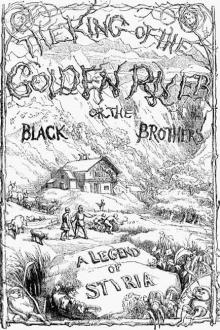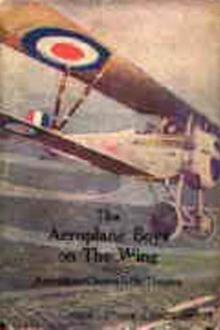Genre Fairy Tale. Page - 7

you might incautiously give the show away. You had a good passage?"
"Excellent," replied von Ruhle. "I am getting well-known to the strafed English custom-house officers at Queenboro' and Harwich. They recognize me by my stick, I believe, but they little know that it is a new one every time. What do you think of this? I have brought it as a specimen for you to see. Just fancy! every time I cross to Holland twenty kilogrammes of good copper are on their way to the Fatherland. By this time Herr Stabb of Essen is well acquainted with my Malacca canes."
"A good weight to carry about," remarked Ramblethorne, wielding the disguised bar of copper. "I wonder you troubled."
"Mein Gott! I could not leave it," declared von Ruhle. "Someone might take a fancy to it, and then the secret would be out. But tell me: have you succeeded in getting that commission you spoke of?"
"I am still living in hopes," replied Ramblethorne. "Of course I could have obtained a post of temporary surgeon in the Brit

e minutes.
But there had been a clever, good-natured littleFrench teacher who had said to the music-master:
"Zat leetle Crewe. Vat a child! A so ogly beauty!Ze so large eyes! ze so little spirituelle face.Waid till she grow up. You shall see!"
This morning, however, in the tight, smallblack frock, she looked thinner and odder thanever, and her eyes were fixed on Miss Minchinwith a queer steadiness as she slowly advancedinto the parlor, clutching her doll.
"Put your doll down!" said Miss Minchin.
"No," said the child, I won't put her down;I want her with me. She is all I have. She hasstayed with me all the time since my papa died."
She had never been an obedient child. She hadhad her own way ever since she was born, and therewas about her an air of silent determination underwhich Miss Minchin had always felt secretly uncomfortable.And that lady felt even now that perhaps it would beas well not to insist on her point. So she lookedat her as severely as possible.
"Yo

ling-pin no sooner touched the cap, than it flew out of Schwartz's hand, spinning like a straw in a high wind, and fell into the corner at the further end of the room.
"Who are you, sir?" demanded Schwartz, turning upon him.
"What's your business?" snarled Hans.
"I'm a poor old man, sir," the little gentleman began very modestly, "and I saw your fire through the window, and begged shelter for a quarter of an hour."
"Have the goodness to walk out again, then," said Schwartz. "We've quite enough water in our kitchen, without making it a drying house."
"It is a cold day to turn an old man out in, sir; look at my grey hairs." They hung down to his shoulders, as I told you before.
"Ay!" said Hans, "there are enough of them to keep you warm. Walk!"
"I'm very, very hungry, sir; couldn't you spare me a bit of bread before I go?"
"Bread, indeed!" said Schwartz; "do you suppose we've nothing to do with our bread, but to give it to such red-nosed fellows as you?"

topped more than once, and, loitering along, it was dark when they neared their destination.
As they would have drawn up to the wharf there was a sudden flash of light--gone in a moment--followed by a dark body that swished by them like a flash.
Frank uttered an exclamation of astonishment.
"See that?" he demanded.
"Yes. What could it have been?"
"You've got me, but it's heading toward the open sea. Great Scott! Maybe it's an enemy."
"An enemy?"
"Yes; you know how anxious the Germans are over this submarine business. Maybe this fellow has been spying about. May be going to report to a German submarine out there some place."
"Think we had better follow and have a look?" asked Jack.
"Believe it would be a good idea. Let's go."
Without another word, Jack brought the boat about and headed after the one that had so recently dashed by them. In the darkness ahead there was nothing to be seen.
"Like looking for a needle in a haystack," Jack

never would Frank be apt to forget the look of absolute terror he discovered upon the agonized face of the bully. Puss had detected the presence of some one near by, and was trying to shout, as well as stretch his appealing hands out, though not with much success.
He actually went under while Frank looked; and the heart of the would-be rescuer almost stood still with a terrible fear that that was the end.
But he kept on, and in another moment a head once more bobbed up, with Puss threshing the water frantically. Once he had gone down. According to what most people said, he would possibly vanish twice more, and after that never rise again.
If anything was to be done, there was no time for delay. Frank was within ten feet of the struggling figure when it came up. He immediately dove, and managed to rise to the surface behind Puss. Then, just as the other was floundering beneath the surface of the agitated water again, Frank caught hold of his sweater close to his neck, and held on with migh

an air of good-humoured sang froid which was peculiar to him, Foster said--
"Captain, don't you think I've had these bits of rope-yarn on my wrists long enough? I'm not used, you see, to walking the deck without the use of my hands; and a heavy lurch, as like as not, would send me slap into the lee scuppers--sailor though I be. Besides, I won't jump overboard without leave, you may rely upon that. Neither will I attempt, single-handed, to fight your whole crew, so you needn't be afraid."
The stern Moor evidently understood part of this speech, and he was so tickled with the last remark that his habitual gravity gave place to the faintest flicker of a smile, while a twinkle gleamed for a moment in his eye. Only for a moment, however. Pointing over the side, he bade his prisoner "look."
Foster looked, and beheld in the far distance a three-masted vessel that seemed to bear a strong resemblance to a British man-of-war.
"You promise," said the captain, "not shout or ro-ar."

es that they have something like a quarter of a million dollars buried in tin cans among the brush over there now--"
"It is their form of stocking," put in Charlie Webster.
"Precisely. Well, as I was saying, those old fellows would bury their hoards in some cave or other, and then go off--and get hanged. Their ghosts perhaps came back. The darkies have lots of ghost-tales about them. But their money is still here, lots of it, you bet your life."
"Do they ever make any finds?" I asked.
"Nothing big that I know of. A jug full of old coins now and then. I found one a year or two ago in my garden here--buried down among the roots of that old fig tree."
"Then," put in Charlie, "there was that mysterious stranger over at North Cay. He's supposed to have got away with quite a pile."
"Tell me about him," said I.
"Well, there used to be an old eccentric character in the town here--a half-breed by the name of Andrews. John will remember him--"
John nodded.

s duty by me, and had no desire to hear from me in the future. I was inclined to send the money back to him, but Father O'Leary persuaded me not to do so, saying that I must be in a position to buy these things, if I obtained a commission; and that, no doubt, the money had been given me, not for my own sake, but because he felt that he owed it to me, for some service rendered to him by my father."
"It was an ungracious way of doing it," O'Sullivan said, "but, in your circumstances, I should have taken the money had it come from the old one himself. It is, perhaps, as well that it should have been done in such a manner that you may well feel you owe no great gratitude towards such a man."
"And how did you get over here?"
"There was no great difficulty about that. In spite of the activity of the English cruisers, constant communication is kept up between Ireland and France, and fortunately I had, a short time before, made the acquaintance of one of your officers, who was over there, in disg

all the useful arts which Cadmus and Cecrops had taught, but also helped them to build ships like that in which he had come to Greece. He also founded religious festivals or games in honor of the harvest goddess, De-me´ter. The women were invited to these games, and they only were allowed to bear torches in the public processions, where they sang hymns in honor of the goddess.
The descendants of Danaus long ruled over the land; and one member of his family, Per´seus, built the town of My-ce´næ on a spot where many of the Pelasgian stone walls can still be seen.
The Pelasgians who joined this young hero helped him to build great walls all around his town. These were provided with massive gateways and tall towers, from which the soldiers could overlook the whole country, and see the approach of an enemy from afar.
[Illustration: The Lion Gate, Mycenæ.]
This same people built tombs for some of the ancient kings, and many treasure and store houses. These b

h of science.
While father and son were deep in a discussion of the apparatus of the submarine, there will be an opportunity to make the reader a little better acquainted with them. Those of you who have read the previous volumes of this series do not need to be told who Tom Swift is. Others, however, may be glad to have a proper introduction to him.
Tom Swift lived with his father, Barton Swift, in the village of Shopton, New York. The Swift home was on the outskirts of the town, and the large house was surrounded by a number of machine shops, in which father and son, aided by Garret Jackson, the engineer, did their experimental and constructive work. Their house was not far from Lake Carlopa, a fairly large body of water, on which Tom often speeded his motor-boat.
In the first volume of this series, entitled "Tom Swift and His Motor-Cycle," it was told how he became acquainted with Mr. Wakefield Damon, who suffered an accident while riding one of the speedy machines. The accident disgus